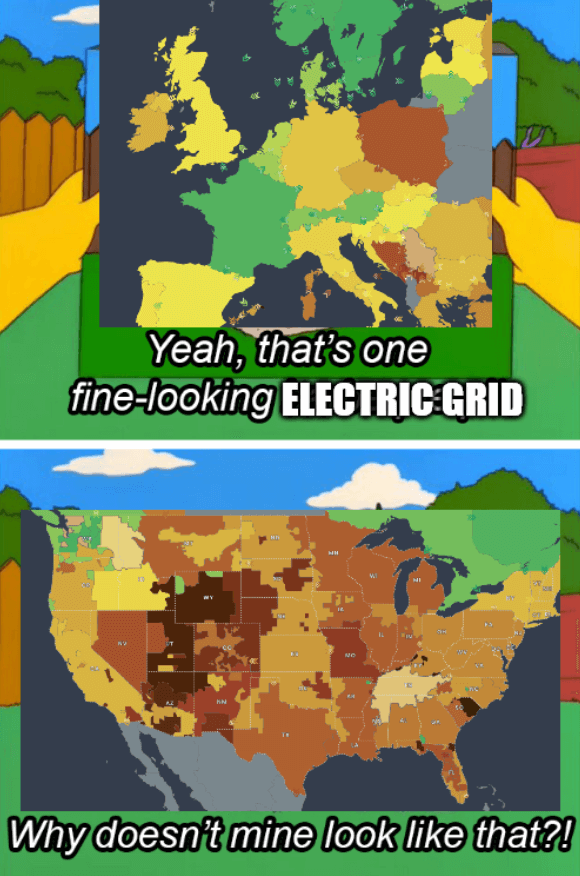this post was submitted on 19 Jul 2024
392 points (95.0% liked)
memes
9806 readers
5 users here now
Community rules
1. Be civil
No trolling, bigotry or other insulting / annoying behaviour
2. No politics
This is non-politics community. For political memes please go to [email protected]
3. No recent reposts
Check for reposts when posting a meme, you can only repost after 1 month
4. No bots
No bots without the express approval of the mods or the admins
5. No Spam/Ads
No advertisements or spam. This is an instance rule and the only way to live.
Sister communities
- [email protected] : Star Trek memes, chat and shitposts
- [email protected] : Lemmy Shitposts, anything and everything goes.
- [email protected] : Linux themed memes
- [email protected] : for those who love comic stories.
founded 1 year ago
MODERATORS
you are viewing a single comment's thread
view the rest of the comments
view the rest of the comments

These are not synchronous grids, but some other kind of boundaries. With synchronous grids the US should be split to only 3 zones, and most of Europe would be colored the same. So I think the kind of map you used is not the best for this joke.
World map of all synchronous grids:.png)
From the website it sounds like that is a map of electric companies or something like that. So this map is not directly related to the Texas crisis. Most of these companies share electricity between each other.
Tom Scott video about synchronous grids: https://www.youtube.com/watch?v=bij-JjzCa7o
More info: https://en.wikipedia.org/wiki/Wide_area_synchronous_grid
I think the main point here is that it's a map of CO2 production, not that the american electrical grid is split.
The part about the texas crisis made me think it's about why the USA is not a single grid, while Europe is one.
Iirc one big reason made the crisis that severe was their grid is separate, so they couldn't buy electricity from other states.
Also if that's the case than using screenshots from that webside is quite misleading. That site uses live data, so if the 2 screenshots were taken at the same time, one of the continents was at night, so solar panels were not working... An avarege or aggregate map should be used, not live data
I'm not sure how it works in Europe, but power grids being privatized is a big issue in USA. It's essentially a monopoly where one company owns and operates the grids in one or a few states. There's no incentive to maintain the grid because there's no competition and they receive government funding whenever a crisis like this occurs. It's cheaper to just eat the fines than it is to buy electricity from neighboring states.
I think competition is not part of problem here. Privatization is.
There was video on Practical Engieneering about this. They could and did until power line protection tripped.
Thanks for leading me down the electric grid rabbit hole!
I like how there is this giant Russian-Belorussian-Georgian-Azerbajanian-Kaxah-Uzbeki-Tajikistans-Kirgizian grid.
Who said something about USSA being "too big"?
The US eastern grid alone generates more than two times electricity than the former SU grid, and they are both dwarves compared to the chinese one. What do you mean, what is the point of your comment? Most of russia is just taiga forest, it's big, but doesn't need electricity.
There are lots of small cities and villages in that taiga. They require some wires anyway.
Similar argument can be made about US.
I don't see how your post refutes his? Russia is big, but it's sparsely populated, especially anywhere east of Moscow until you get to Vladivostok. Countries other than Russia in their grid equally if not more so sparsely populated. Top that with disparities in Quality of Life between the two grids, and you find the larger one using less power because it's services less clients who use less electricity.
https://lemmy.world/post/17777580
https://www.macrotrends.net/global-metrics/countries/USA/united-states/population-density
https://www.macrotrends.net/global-metrics/countries/RUS/russia/population-density
Siberia is HUGE compared to anything.
Yes. And USA says "no, we are too big for unified grid and functioning railway, and density is soooo low".
Thank you for finally replying my question. Not everyone living in amerika, and we don't know who said something about USSA being “too big”? I have no idea who said that because you are paraphrasing something from your US based bubble. Do we have US defaultism here on lemmy?
What is even USSA, I thought you mistyped USSR... There are a lot of tankies here, I thought we are debating about the Soviet Union again.
Oh and your comparison, it seems my reply was correct. The US grid is by far "bigger" than this former SU grid, but not in geometrical mean,
We call this copium